Swiss firms muscle into Slovenian markets
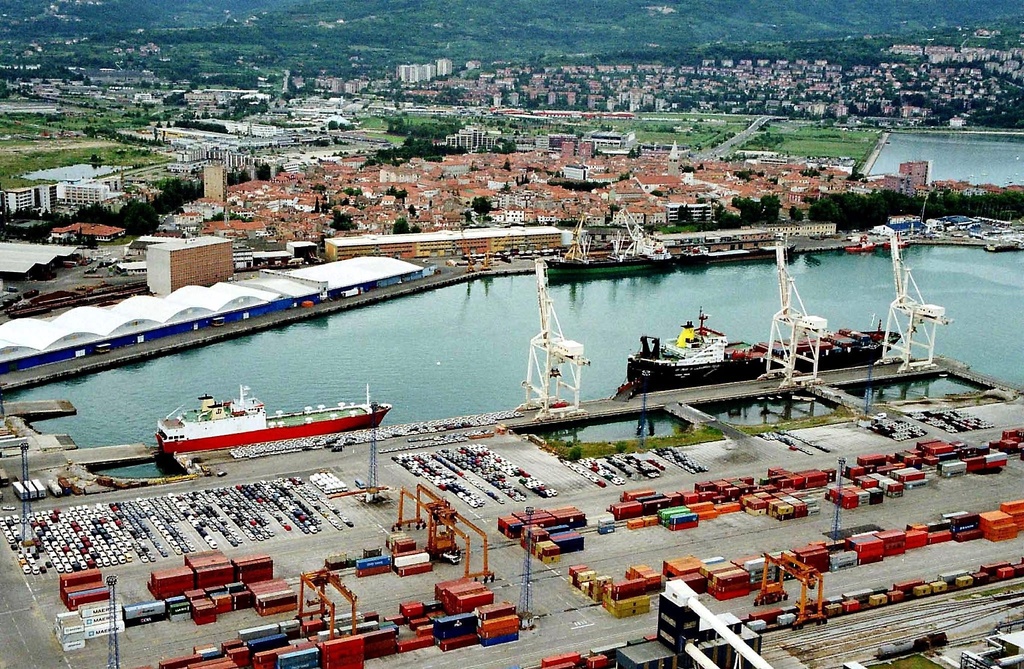
Slovenia – the westernmost successor state of the former Yugoslavia – has been an attractive target for more than 120 Swiss firms and investors.
The country joined the European Union in 2004 and receives financial contributions from Switzerland as part of efforts to reduce social and economic disparities.
Well-known brand names such as Landis+Gyr, Sibir, Geberit and Eternit as well as the pharmaceutical giant Novartis and the engineering company ABB are among the Swiss firms that have opened offices and set up subsidiaries in Slovenia.
The annual trade volume between the two countries exceeded SFr500 million ($596 million) last year. Direct investments from Switzerland were worth twice that much, with the Swiss only second to Austria.
Experts consider the €900 million investment to be the basis. At an event in Zurich earlier this month at the Chamber of Commerce Switzerland – Central Europe, some pointed out the potential for more.
Total direct investment from abroad in Slovenia stands at more than €11 billion – the equivalent of about 22 per cent of Gross Domestic Product. Direct investment is seen as a reliable indicator of confidence in the stability and legal compliance of a country. It means that foreign investors acquire domestic production or service sector companies.
The Swiss foreign ministry describes economic relations with Slovenia as positive and bilateral ties on a political level as “excellent”. Switzerland recognised Slovenia just a few months after the former Yugoslav state declared its independence in 1992.
Cleantech
Among the new EU member states in central and eastern Europe, Slovenia has the highest per capita GDP – €20,700 in 2009.
Nevertheless it benefits from Swiss funds aimed at reducing social and economic disparities in Europe. The contribution, endorsed by Swiss voters in 2006, is a modest SFr22 million by 2012, according to the foreign ministry.
The funds are being used for projects to promote renewable energy notably installing heating systems – powered by solar, biomass and thermal heat pumps – in public buildings.
Over the past two years both countries signed agreements for projects worth SFr9 million on Slovenia’s Mediterranean coast and its mountainous northwestern region.
Export oriented
Experts say the main reason for the large foreign investment in Slovenia is its high degree of integration into the global economy and its geographical position at the north-south and east-west crossroads of trade routes.
It is also seen as a springboard for further investment in other local markets in the Balkans.
For its part Slovenia’s €5 billion in foreign investments go to Serbia (30 per cent) and its eastern neighbour Croatia (22 per cent). Foreseeable membership of Croatia in the EU could both spur competition with Slovenia but also help create closer economic ties in a single border area with no customs hurdles.
Slovenia will celebrate the 20th anniversary of its independence on June 25.
“The young nation Slovenia achieved its goals very quickly over the past two decades,” said Slovenia’s ambassador to Switzerland, Bojan Grobovsek.
His country became not only a member of the EU, the United Nations and the Nato defence alliance, it also joined the euro currency zone in 2007.
New markets
Swiss companies say they do not aim to outsource their production to Slovenia.
“We primarily want to get access to new markets,” said Mathias Eichmann of Eternit. The roofing and fitting company was even able to boost its capacity output as a result of the expanding market.
The sanitary engineering company, Geberit, has already been active in Slovenia since the late 1980s.
“Then in 1997 we acquired the Slovenian company Prosan. All products built there have been marketed under our brand name since 2004,” said Roman Sidler of Geberit.
The Swiss company, with a turnover of about SFr2 billion and a headquarters outside Zurich, has 15 production sites, including one in Slovenia.
Another Swiss company, Sibir, producing household appliances including refrigerators and washing machines, sells the products of its rival – Gorenje – in Slovenia.
But several Slovenian brand names are also established on the Swiss market, notably Elan or Iskra Autoelektrik.
Big business
The most spectacular business deal dates back to 2002 when the Swiss pharmaceutical company Novartis announced it was taking over the Slovenian pharma producer Lek for about SFr1.2 billion. It was a key move for the Swiss group who went on to become the market leader in central and eastern Europe.
Founded in 1946 Lek was the first firm to be privatised during the transformation period in the 1990s and whose shares were traded on the stock market.
The world leader in electricity metering products, Swiss-based Landis+Gyr, opened a subsidiary in Slovenia the home of Iskra, another major player on the global market.
Recently taken over by a Japanese company, Landis+Gyr are facing stiff competition from the Slovenian competitor.
GNP (2010): €36.1 billion
Population: 2 million
Exports (2010): €18.3 billion
Imports (2010): €19.6 billion
Germany is the largest importer of Slovenian goods and services, ahead of Italy and Austria.
Exports to Switzerland were just 1% last year.
Switzerland’s direct investment in Slovenia accounted for €0.9 billion – from a total of €11.2 billion, making it the second most important investor.
Switzerland has been granting financial aid to countries in eastern Europe to help them transform into market economies.
As part of the second set of bilateral treaties with Brussels, non-EU member Switzerland pledged to provide SFr1 billion ($1.19 million) to ten new EU member states mainly in eastern Europe.
Parliament gave the green light in March 2006, but the rightwing Swiss People’s Party forced a referendum.
Voters endorsed the SFr1 billion package in a nationwide ballot in November 2006.
A further SFr257 million was granted in 2009.
Switzerland paid about SFr3.45 billion towards the transition of eastern and central European states between 1990 and 2006. A further SFr730,000 has been earmarked for non-EU member states for the 2007-2011 period.
(Adapted from German by Urs Geiser)

In compliance with the JTI standards
More: SWI swissinfo.ch certified by the Journalism Trust Initiative
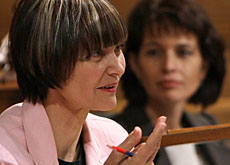
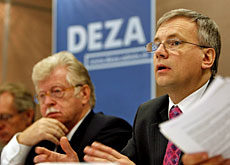
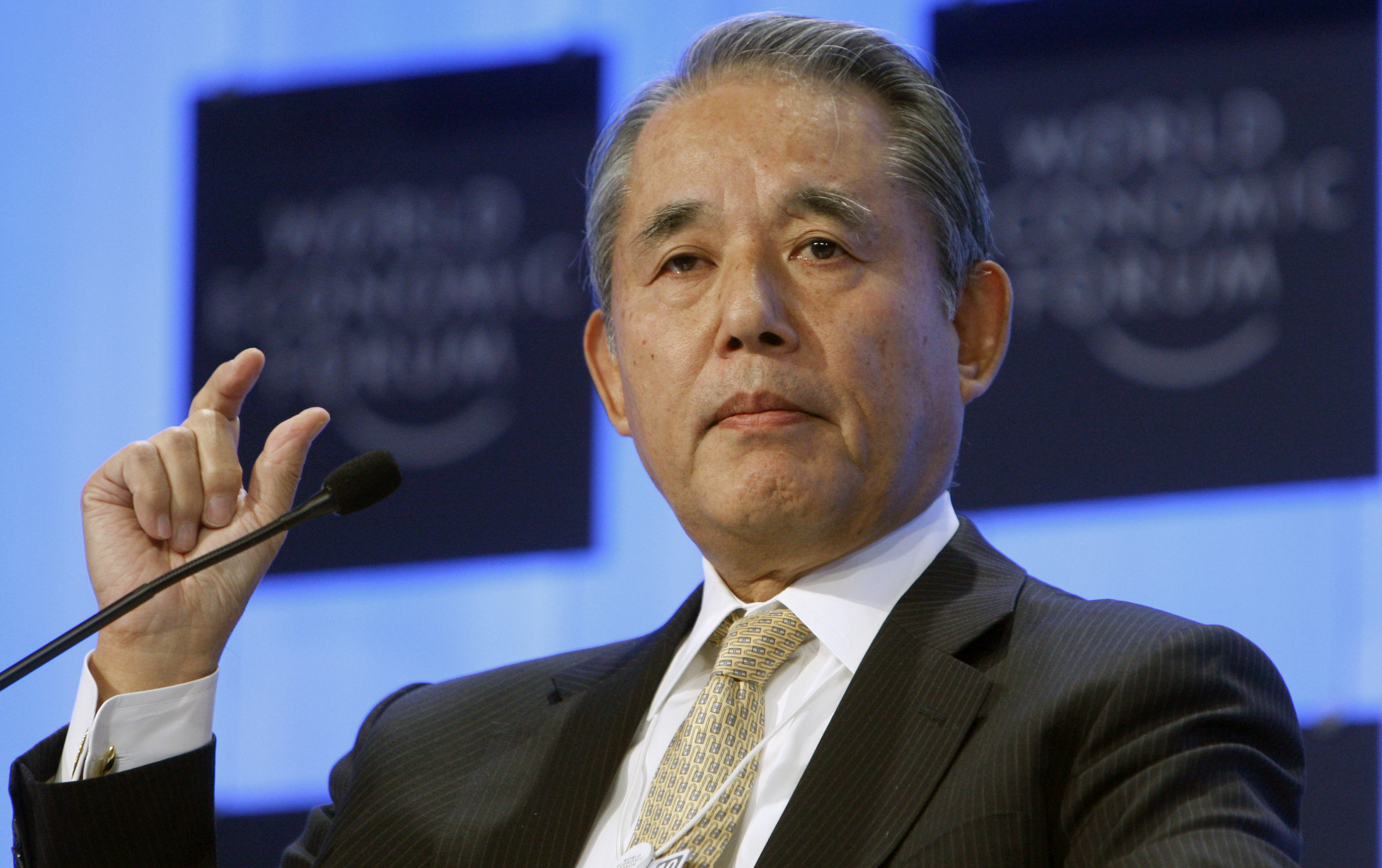
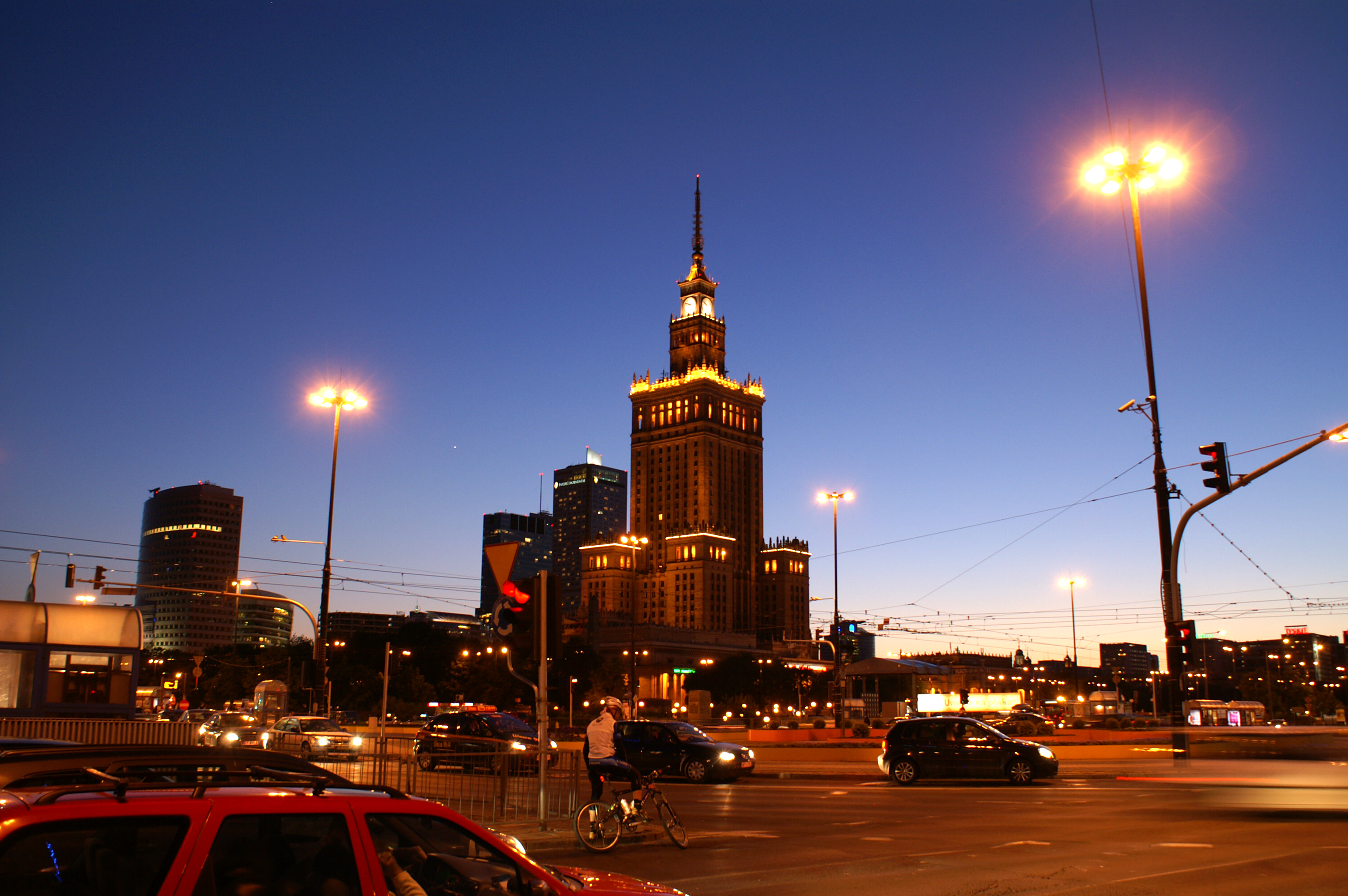
You can find an overview of ongoing debates with our journalists here. Please join us!
If you want to start a conversation about a topic raised in this article or want to report factual errors, email us at english@swissinfo.ch.